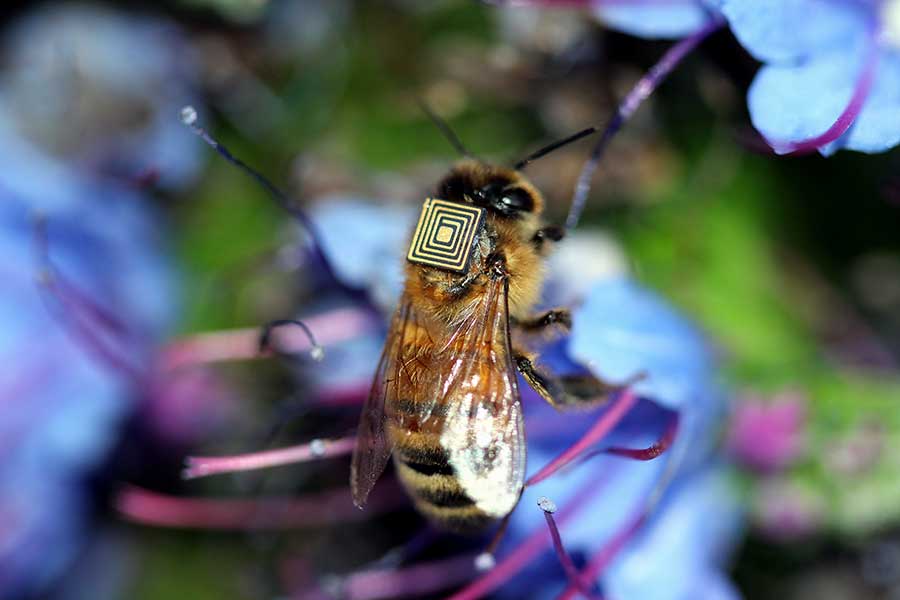Australia – Since Honey bees population are vanishing massively, researchers from the Global Initiative for Honeybee Health found a technological way to understand why this is happening. Researchers created a system that comes as a microscopic sensor that is attached to the bee in order to track its journey and find some answers.
The pollinators’ numbers are decreasing more and more over time, this declining phenomenon has been named “colony collapse disorder” a pollinator is the biotic agent that moves pollen from the male anthers of a flower to the female stigma of a flower to accomplish fertilization of the female gametes in the ovule of the flower by the male gametes from the pollen grain, thus honey bees may become extinct if scientist don’t figure out what’s going on.

According to the Natural Defense Resource Council, almost one-third of all honeybee colonies in the United States have vanished.
How do micro-sensors work?
The micro-sensors are attached to all the honey bees and hives in particular, so investigators know how often and how long they’re foraging, whether they’re feeding or collecting pollen and also what they’re doing in the hives. The high-tech backpacks weigh less than the honey bees (5.4 milligrams) and they are placed on their backside. The microscopic sensor doesn’t mess up the stability and well-being of the European insect.
The Sydney Morning Herald stated 15,000 honeybees in Australia and Brazil have been given these devices. Furthermore, the data collected with the microsensors will be for free access to the public by the Commonwealth Scientific and Industrial Research Organisation (CSIRO).
“The tiny technology allows researchers to analyze the effects of stress factors including disease, pesticides, air pollution, water contamination, diet and extreme weather on the movements of bees and their ability to pollinate. We’re also investigating what key factors, or combination of factors, lead to bee deaths en masse.” said Dr.Paulo de Souza, lead author of the study.
In his audio you can hear Dr Stephen Quarrell about benefiting from technology.
Audio PlayerSo far, researchers believe this sudden death of the honey bees may be accredited to climatic radical changes and also pesticides. Hopefully, the innovate system will give some answers about the unexpected and uncommonly phenomenon that is destroying honey bees population.
Source: The Sydney Morning Herald
